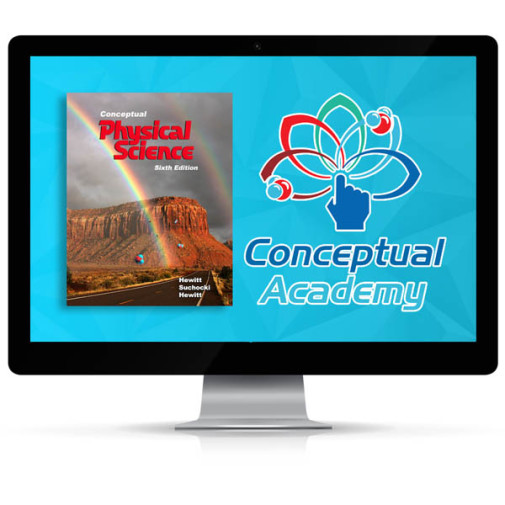We use cookies to make your experience better. To comply with the new e-Privacy directive, we need to ask for your consent to set the cookies. Learn more.
Physical Science, PAC One Year Self-Study Online Course
A truncated version of physical science (#069873), with fewer lessons and labs using household items. Covers the essentials of physics, astronomy, and chemistry (PAC) to provide one credit in the Survey of Conceptual Physical Science.
This is a rich and inspiring introductory physical science course with a focus on the concepts of physics, astronomy, and chemistry. For physics, this includes Newton's Laws, momentum, energy, gravity, and the mechanics of orbital motion followed by fluids, heat and electricity. Students will explore the nature of sound and light as well as atoms and the source atomic energy. This sets the stage for an exploration of the basic concepts of astronomy, which include a study of our solar system, stars, galaxies, and the universe as a whole. With an understanding of how the elements of the periodic table are synthesized within stars, and with a background in physics, the student is set to explore the basic concepts of chemistry including chemical bonding, mixtures, chemical reactions, and organic chemistry. Includes all the resources of the more comprehensive full version listed above such as a complete set of labs requiring materials that can be obtained from home or a local discount store. To learn more about this abbreviated physical science course, download its users manual.
Conceptual Academy's self-study courses meet the needs of college-bound students who plan to major in a non-science-based field. Taking a physics-first approach, this secular science program is a hybrid that integrates a textbook and online portal for self-study. Most courses require the purchase of a physical or pdf textbook along with the Online Course. Currently, purchase of Biology courses includes the textbook in a PDF format, as well as the online course. For other courses, see individual courses for textbook ISBNs that may be available from us or used through other online suppliers. Conceptual Academy also recommends the more affordable optional e-Textbook from Vital Source. Access information for the course will be emailed in 1-2 business days after purchase.
So, what is Conceptual Academy? Centered on video instruction created by the text authors, Conceptual Academy's self-study courses are content rich and flexible for independent learners. There are worksheets, chapter summaries, automated quizzes and homework, a grade book, supplemental podcasts with chapter discussions, educational advice and interviews, chapter summaries, and more. Hands-on activities within the textbook can serve as the labs and use common household items. Also available are interactive simulations from University of Colorado and eScience Lab kits (additional cost). Purchase of the online course is for one year, one student. The courses can be accessed from laptops and desktop computers, and 'mobile links' are posted with each video lesson that allow play on mobile devices. Unless noted, the textbook must be purchased separately.
The sequence of these texts and courses are as follows: Physical Science Explorations and Integrated Science Explorations at the junior high level, then Conceptual Physics, Conceptual Chemistry, then Conceptual Biology. If beginning this series at the high school level, then the student should begin with upper-level Conceptual Physical Science before going on to physics, chemistry, and biology. Please note that the complete course requires purchase of the textbook AND the online course. Older edition textbooks can be used with modifications.
Taking a physics-first approach, students who have used a middle school Integrated Course should begin with Conceptual Physics, followed by Conceptual Chemistry and Conceptual Biology. If beginning this series at the high school level, then the student should begin with upper-level Conceptual Physical Science before going on to physics, chemistry, and biology. Parents/Teachers will want to verify courses that meet state requirements. Please note that the complete course requires purchase of the textbook AND the online course, except for Biology.
Available in a one-year or two-year self-study path, Conceptual Physical Science corresponds to the Conceptual Physical Science textbook (6th edition). It is recommended for two academic years for the beginning high school student who has not completed the Conceptual Science Middle School courses.
| Product Format: | Other |
|---|---|
| Brand: | Conceptual Productions |
| Grades: | 9-12 |

